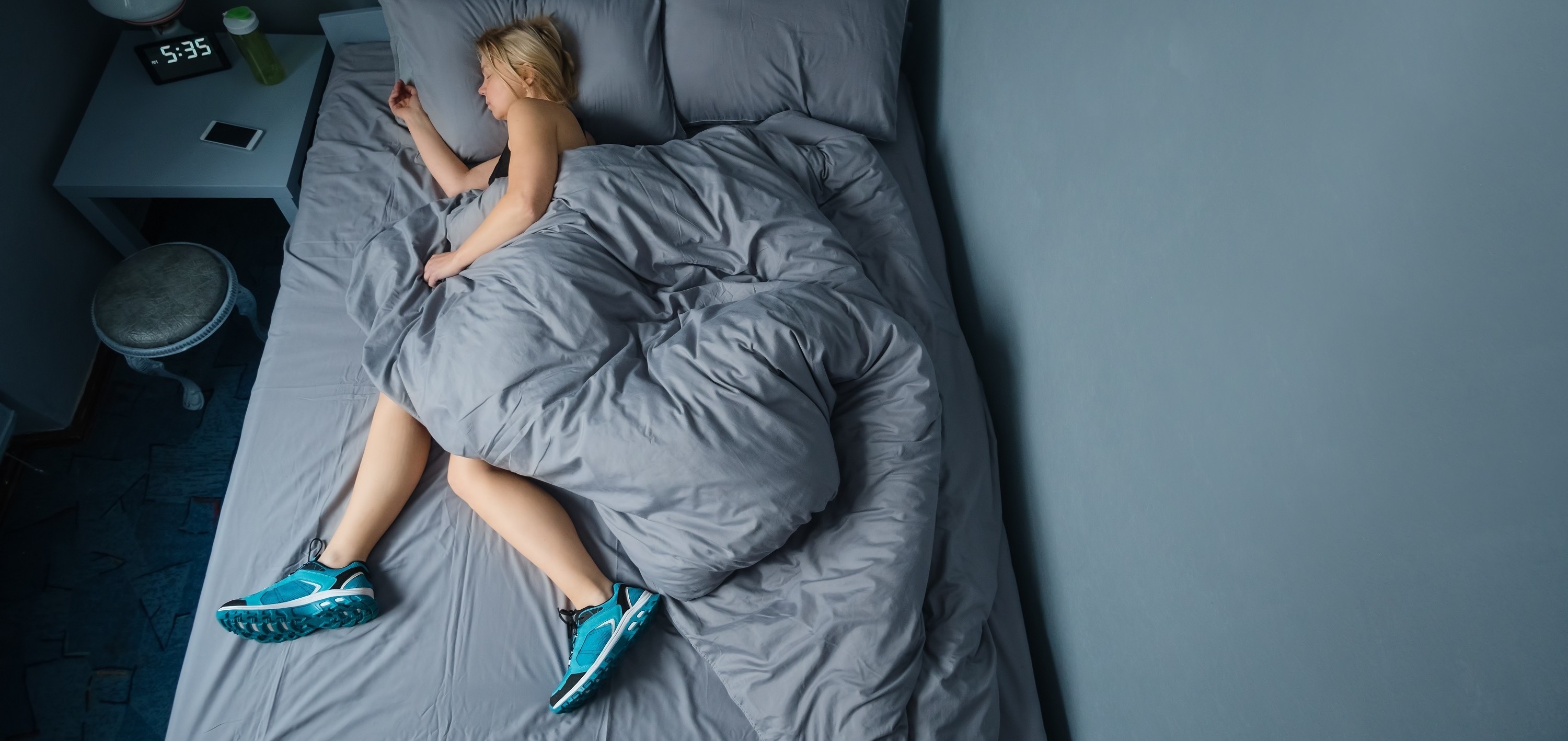Struggling to sleep? The answer to a good night’s sleep might not be to relax and do nothing, but to get up and get moving. As little as ten minute’s aerobic exercise a day can improve the quality and duration of your sleep.
But a quick dash to the shops and back won’t work wonders – unless you do it regularly. Exercises’ sleep-tastic benefits are better and longer lasting when you routinely workout. We often hear back from our members that after a few weeks or months of regular exercise, that they not only start to feel better, they sleep better too.
The science bit
Exercise effects our sleep cycles in a few different ways. Firstly, the most obvious; by moving more and faster than we usually would, we tire ourselves out.
Sleep is also a great stress buster – helping us to unwind after a busy day by shifting our focus from our worries to our workout, and helping us to get into a meditative state through repetitive movements.
And that’s not all. Aerobic exercise stimulates our bodies to release serotonin, a neurotransmitter which helps improve our mood and most importantly, regulate our sleep.
It’s all in the timing
It used to be said that exercising too close to bedtime ‘revved you up’ and could actually cause sleep problems, however, for some people this doesn’t hold true. It’s about finding out what works for you and your family – and more importantly, where and when you can fit exercise around your other commitments.
If you find that you’re too busy during the day, why not plan a fast walk, swim or gym visit after the family are all settled for the evening? Some people like to exercise before bed, finding it literally tires them out and gives them a good night’s sleep.
Some studies are beginning to show that exercising in the morning can help with your body’s circadian rhythms (our sleep/wake cycle) – if you don’t fancy a pre-work workout, why not ditch the car and walk (or run!) to work or school?
Get sweaty, get sleeping
There’s no one exercise that is perfect for enhancing your sleep, any movement is better than none. However, there are three types of exercise that can help supercharge your sleep:
Aerobic exercise – also called cardiovascular exercise because it’s the type of exercise that gets our hearts beating faster. Even small bouts of aerobic exercise (10 minutes or so) will help, however the aim is to get the Government recommended 150 minutes a week (and an hour per day for children) – you’ll see a greater improvement if you can reach this target. You don’t have to do the whole 150 minutes at once (or you might be sleeping on your gym mat!), you can break it up into small bouts throughout the week. Running, brisk walking, swimming, cycling or a fast-paced exercise class like Zumba are all perfect. For kids, walking fast to and from school, swimming, running around at playtime or going to an after-school sports club will help regulate their sleep and tire them out.
Strength training – studies show that building muscle can help with improving your sleep, especially helping you to fall asleep faster and keep you asleep throughout the night. A full-body, half-hour strength workout works best – try crunches, bicep curls, leg presses, planks, squats, push-ups and calf raises. As an added bonus strength training will also help improve your performance in any other sports you do, such as tennis, running or cycling. With proper guidance, children over the age of eight can partake in child-specific strength training classes.
Yoga – although it won’t get your heart rate going, yoga’s slower movements and its focus on breathing will help to calm you down and can help shift your focus from your worries to your movements. Yoga is a gentle way to build your body’s strength and flexibility – two things we need to keep going as we get older.
Sleep more, train harder
It’s not just exercise that makes sleep better, there’s a vice versa effect too. The better you sleep, the better your workout will be. Sleep is as an important element in your training as, well, your training.
As we sleep growth hormone is released improving muscular regeneration and recovery, our energy consumption drops, so we can use the (good quality!) food we’ve eaten in the day to build and repair our muscles. Professional athletes build in sleep and rest time exactly for this reason.
Studies have shown that sports players who compete on less than six hours of sleep per night have much higher injury rates. Why? Lack of sleep causes your reaction times to drop significantly and impairs your judgement, plus your body doesn’t have time to rest and repair itself.
Sleeping also helps your brain reset and recharge, allowing you to approach your next workout focused, motivated and refreshed.
For all of us, sleep is important in maintaining optimum health. Whether you’re sleeping to train or training to sleep, getting the right amount of shut-eye will make you stronger, more alert and focused, fitter and healthier – whether that’s at the gym, on the sports field or in your everyday life. Sweet dreams.

